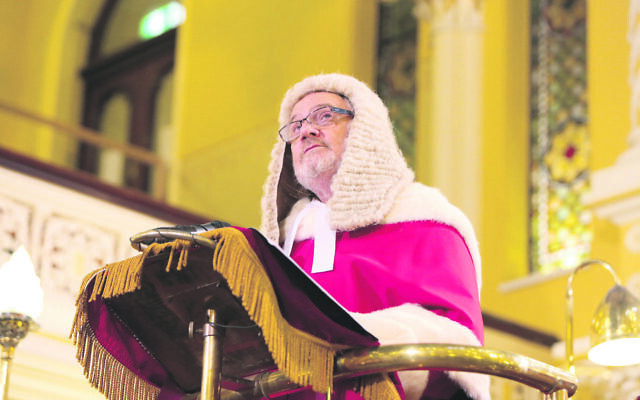Call for dialogue
It called for a "calm and open dialogue" and a full consideration of the ramifications of the proposed changes.
Jewish communal leader and NSW Supreme Court judge Justice Stephen Rothman has helped to draft a statement by Jewish legal professionals worldwide addressing Israel’s proposed judicial reforms.
Rothman sits on the board of the International Association of Jewish Lawyers and Jurists (IJL), which was founded in order to promote human rights and oppose antisemitism and more recently the delegitimisation of the State of Israel.
“The IJL is deeply concerned about attacks against Israel from the outside, but the members of the IJL have, in recent years, grown increasingly concerned by the deep divisions within Israeli society,” the statement released last week said.
“We see each side in the ongoing political debate denying the very legitimacy of the other side … We see a total breakdown of communication.”
The statement said there can be no democracy “without a solid system of checks and balances” between the three branches of government – the legislature, the executive and the judiciary.
It called for a “calm and open dialogue” and a full consideration of the ramifications of the proposed changes.
“We call upon the government of the State of Israel to approach any reform of the legal system cautiously and thoughtfully, in a considered manner.
“The government must not simply ignore those who are opposing the legal reform,” the IJL said, adding that it “ought to listen to the outstanding lawyers and jurists in the Jewish world who are voicing their reservations over the potentially unwelcome aspects of the legal reform”.
The statement urged the need for balance between improving the justice system and maintaining its independence.
“Only after full review, should the government enact those changes that need to be made, based on consensus, and not imposition by force,” it said.
Rothman told The AJN the IJL has never previously involved itself in internal Israeli politics.
“We can see arguments on behalf of both sides. What we want to happen is for there to be a civil discussion about it,” he said.
“We can lend our resources … we think there is a good argument for reform of the judiciary, and its method of appointment.
“We also think that there is good argument in relation to the Basic Law and not ordering it in a way which undermines the democracy that Israel has enjoyed.”


comments